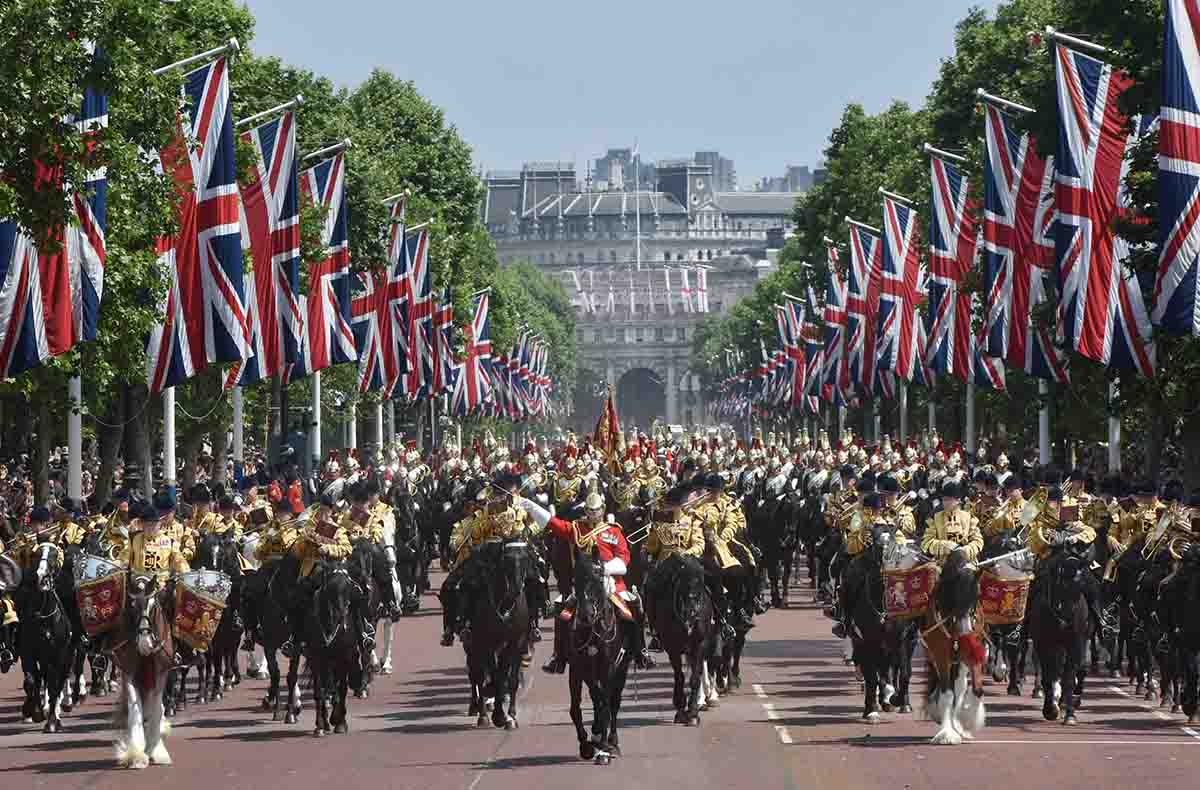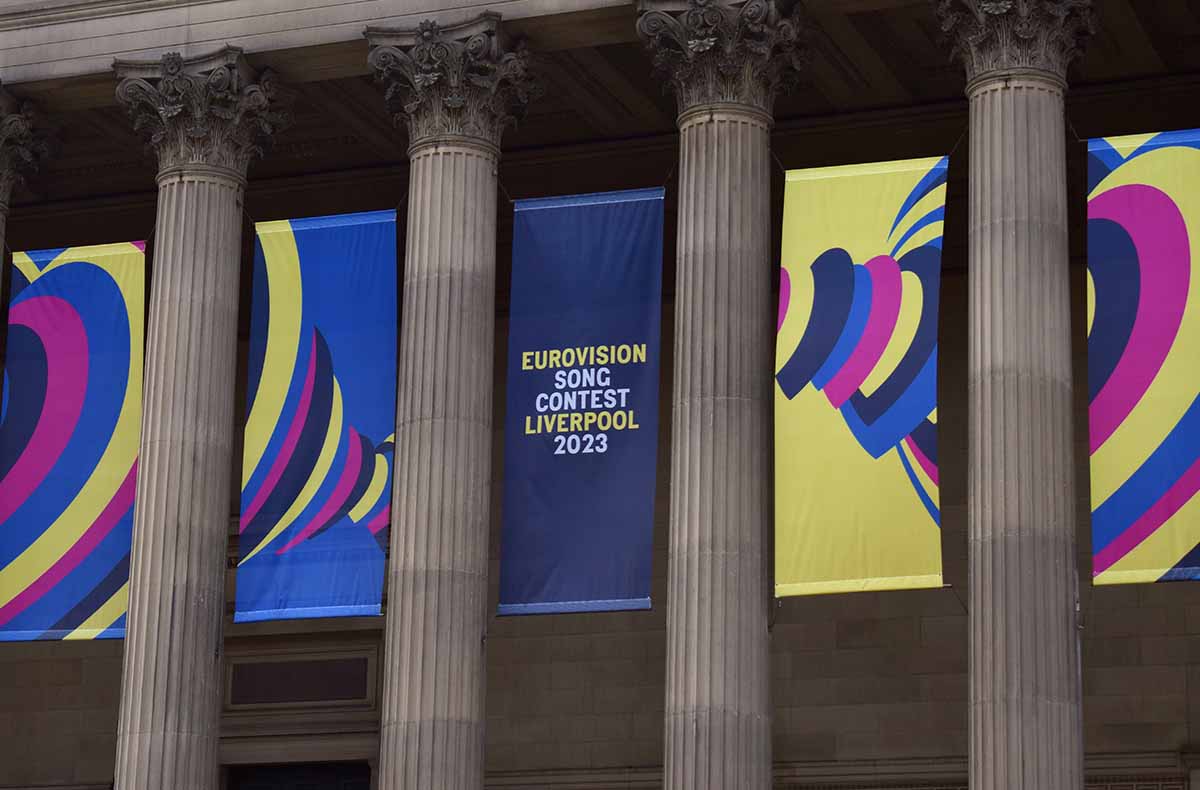
The streets around Westminster have been filled with military personnel in the early hours of the morning. While London sleeps, the army has been out in force. The soldiers are not keeping the United Kingdom’s capital safe. They have been rehearsing their roles in the coronation of King Charles III. It’s a strange sight.
Even without their ceremonial uniforms, the troops make for impressive figures. The Household Cavalry look characteristically sharp in khaki tunics, but the plumed Albert helmets are jarringly incongruous. There are few better symbols of anachronism at the heart of British life.
The Horse Guards are highly-trained fighters. They have been deployed in Iraq and Afghanistan. On Coronation Day, they will merely be extras in a massive PR event for the royal family.
There is no need for a ceremonial crowning for Charles. He is already king. No other European monarchy has conducted such an event for more than 100 years. British royalty needs a boost. Support for the institution has been declining since pollsters started canvassing the public’s view in 1983. Last month just 29% of those asked said the monarchy was “very important.” A hefty dose of pageantry is often considered a cure for republicanism.
The UK is in an emotionally difficult situation. Brexit inflamed the latent xenophobia and jingoism that lurked under the surface of British pride, but the after-effects of cutting economic ties with Europe have destabilized the economy. In the run-up to the Coronation, the Bank of England’s chief economist told the populace to “accept that they’re worse off.”
The royal extravaganza is expected to cost anywhere between £50 million and £100 million. This has raised hackles in a country that has more food banks than McDonald’s restaurants.
Queen Elizabeth II’s Coronation in 1953 was celebrated because Britain was emerging from the second world war and its austere aftermath. For the first time in decades, the future was beginning to look brighter and a new, positive era beckoned. Elizabeth was 27 when she was crowned and carried an air of relative freshness. She was a symbol of better days ahead. Her son is 74 and many of his “subjects” can only envisage grim times on the horizon.
The sight of Charles—a man worth an estimated £1.8 billion—taking a ride in a golden carriage at the taxpayers’ expense seems like one of the sickest jokes in a modern Britain, where the idea of redistribution of wealth has been turned on its head. During Liz Truss’s brief and damaging time in 10 Downing Street, the former prime minister claimed “it is fair” to give the biggest tax cuts to the highest earners. Rishi Sunak is not quite so bold on the subject, but Truss’ successor boasted that, during his tenure as chancellor of the exchequer, he diverted funding from deprived urban areas to wealthy regions. The country has been recast to suit the needs of the rich in the 13 years of austerity and Tory rule. It is like a throwback to a darker age.
What has this got to do with Charles, a man who sees himself as a relatively liberal individual and an advocate for climate control who is often at odds with Conservative thinking? Plenty.
For all the King’s façade of activism, he remains the biggest symbol of inherited, institutional privilege on the planet. The monarchy is the cornerstone of Britain’s class system—a social stratification that has a negative impact on the vast majority of the population.
The conveyor belt that takes politicians like Boris Johnson from Eton to Oxford to Westminster only makes sense in the context of a class-ridden nation. Birthright and ancestry override brains and ability to an unacceptable degree. Charles was born to rule. He is at the forefront of a hierarchy of privilege that still dominates life in the UK in 2023.
The King has a great sense of his own unearned status. His high-maintenance demands when traveling would shame a diva. Servants queue to meet his every need. On Coronation Day, the Commonwealth’s great and good will queue up to pay homage.
There are other aspects of Charles’s personality and lifestyle that have alienated a significant proportion of the public. His behavior towards his first wife, Princess Diana, was callous and unfeeling. He maintained his relationship with Camilla, who will be crowned Queen alongside him, throughout his first marriage. In a phone call between the new King and Queen—who were both married to other people at the time—Charles expressed the desire to be “reincarnated” as a tampon and live inside Camilla.
Family matters have proved difficult for him. Royalists have made great play of the multicultural nature of the Coronation and the participation of people from every background. However, the King’s mixed race daughter-in-law and her children will not be present at the ceremony. There is not much support for the monarchy among Britain’s minority communities.
It is easy to believe, watching mainstream British TV, that the entire nation is marching like a guards regiment in philosophical lockstep in support of the King. The notion that television viewers should swear an oath of allegiance to Charles during the service has provoked an angry backlash. Royalty’s time is passing.
What would be lost if the United Kingdom became the United Republics? One of the justifications is that tourists flood to London because of the monarchy. This is a myth. The palaces would exist, Horse Guards could still trot down the Mall and pageantry would have its place. The lack of royals has done the Louvre and Versailles no harm in terms of attracting visitors. The best traditions could remain.
Eradicating the idea of hereditary royalty would be the first step towards dismantling the class system and a mindset that is mired in a long-gone empire. Then the idea of transferring wealth from the poorest to the richest might not be accepted so easily.
The Coronation enshrines the inane idea that accidents of birth instill worth. Monarchy is not Britain’s crowning glory. All the King’s horses and all the King’s men can’t distract from that reality.



